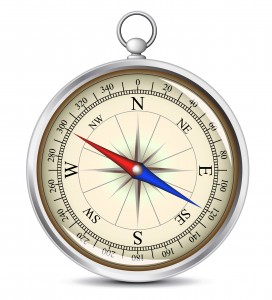In our mentoring program, The Mentor Coaching Group, we focus on teaching coaches the importance of Establishing the Coaching Agreement (ICF Core Competency #2). In fact, this competency is so vital to master that Carly has created an extensive product bundle on Establishing the Coaching Agreement.
The definition of this core competency is, “The ability to understand what is required in the specific coaching interaction and to come to agreement with the prospective and new client about the coaching process and relationship.”
There are five behavioral PCC Markers that relate to this core competency, so let’s take a look at how they might play out in a coaching session.
The Coaching Agreement is Your Compass
Written by Karen Boskemper, PCC co-creator and co-leader of The Mentor Coaching Group
One way to think of the Coaching Agreement is that it is your compass during the coaching session because it guides the coaching process in the direction of the client’s expressed goals.
Let’s Go Hiking!
Imagine a friend, Ruth, invites you to go on a hike in Yosemite’s National Park. She has always wanted to hike in the park and has asked you to accompany her. You are an experienced hiker and she needs you to help her in navigating the rugged landscape. Similarly, our clients come to the coaching session with a gap or an aspiration that they want our help in navigating through.
In our hiking example, you might be curious about your friend’s goal (PCC marker #1). You ask her, “What do you want to accomplish on this hike?” She shares with you that her desire is to test her strength and endurance. She’s been working out and exercising in order to get ready for this hike.
“Hmmm”, you think, “I wonder how she intends to measure her strength and endurance?” So you ask, “How will you know you have achieved your desired level of strength and endurance on this hike?” (PCC marker #2).
She responds that her goal is to reach Vernal Falls, which will be the furthest she has ever hiked in one day. You are intrigued and still curious and ask: “Ruth, what’s important to you about getting all the way to Vernal Falls besides testing your strength and endurance?” (PCC Marker #3). Ruth shares with you that she attempted the hike a year ago and only got half way. Rather than assuming it was because of her lack of strength and endurance, you get curious once more and ask: “What else, if anything, needs to be addressed in order to make this hike successful for you? (PCC Marker #4). Ruth tells you that she is scared of heights and will need your support and guidance along the upper ridge.
Clarify the Client’s Compass and “True North”
So now that you have mapped out what Ruth wants to accomplish, why it’s important to her, how she’s measuring her success, and what needs to be addressed along the way, you can set out in the direction of her desired outcome. (PCC Marker #5).
The information you gather from a coaching client acts in the same way – it provides you with a compass on how to navigate the landscape as you set out together in the coaching process.
The client is paying you to get them from where they are now to where they want to be. Imagine your friend Ruth paid you to be her guide and you took her off into a different direction towards Half Dome because she happened to mention it in the conversation. You might end up having a great conversation and a lovely hike, but she would never achieve her goal of getting to Vernal Falls.
The Coaching Agreement acts as your compass towards true north. That is where you are heading. In our hiking example you may on occasion veer off into unchartered territory and need to check your location on the map and use your compass to know where to go next. Similarly in a coaching session you will want to check in with the client at some point to make sure you are both still on the right track and heading towards the client’s desired outcome.
As an ICF Assessor, I cannot express enough the importance of establishing a solid coaching agreement, which provides the structure for a solid coaching process and guides the direction of the session. It also guarantees that as a coach you are delivering on your promise to give the client what they paid for.
Delivering on your promise also deepens Trust and Intimacy (ICF Core Competency #2) and expands the client/coach relationship.
So the next time you coach a client ask yourself: “What is their true north?”
Are you preparing for your first or next ICF Credential?
Next Group Program commences February 2015.
Very limited availability!
Carly Anderson and Karen Boskemper offer an awesome mentor coaching group and individual program that has many exclusive offerings for our participants.
One of those offerings is an extensive library of MCC, PCC and ACC coaching sessions for our participants to listen to, evaluate, debrief, and learn from, along with The Target Approach to demystifying the ICF core competencies. These are incredibly valuable learning tools, and will accelerate your understanding of competency distinctions.
Here’s where you’ll find more about The Mentor Coaching Group
Carly and Karen also offer other mentoring options which you can find in the Store



